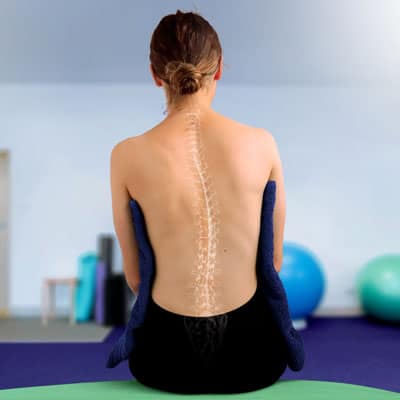Blogs
The Psychological Impact of Scoliosis: Navigating the Emotional Terrain

Living with scoliosis can profoundly affect not only your physical health but also your emotional well-being. In my experience, the Psychological impact of scoliosis often means grappling with feelings of insecurity, anxiety, and isolation. The visible curve in my spine can make me feel self-conscious, while the chronic discomfort and potential for future complications weigh on my mental health. It’s not just a matter of managing pain but also learning to cope with the emotional challenges that come with this condition, making mental health a crucial part of the treatment journey.
Understanding the Emotional Toll
As a physician who has worked with countless scoliosis patients, I’ve witnessed firsthand how this condition affects far more than just the spine. Living with scoliosis often feels like riding an emotional rollercoaster, with ups and downs that can challenge even the most potent spirits.
Anxiety and depression frequently accompany scoliosis diagnosis, particularly in adolescents. Young patients often struggle with persistent worry about their condition’s progression and treatment outcomes. Helping patients navigate their body image concerns is one of our most significant challenges. Maintaining positive self-esteem can feel like climbing a mountain when you’re wearing a brace for 18-23 hours daily.
Social relationships often become complicated territory. We’ve observed that many adolescents with scoliosis experience feelings of isolation, especially during the crucial developmental years. Simple activities like choosing what to wear or participating in physical education classes can become sources of stress and anxiety.
The impact on quality of life extends beyond the social sphere. Daily activities that most take for granted require additional planning and consideration. We’ve seen how this can affect academic performance – imagine trying to concentrate on algebra while managing discomfort from a back brace.
The Physical-Emotional Connection
The physical manifestations of scoliosis create a complex interplay with emotional well-being. Chronic pain and discomfort can lead to:
- Increased irritability and mood fluctuations
- Disrupted sleep patterns
- Difficulty maintaining focus during daily activities
- Changes in posture that affect self-confidence
These physical challenges often cascade into psychological effects, creating what we call the “scoliosis cycle” – where physical discomfort amplifies emotional distress, which in turn can increase perceived pain levels.
Effective Coping Strategies and Support Systems
In our practice, we’ve found that a multi-faceted approach to emotional support yields the best results. Cognitive-behavioral therapy (CBT) has shown remarkable effectiveness in helping patients develop healthy coping mechanisms. Through CBT, patients learn to challenge negative thought patterns and develop more constructive ways of thinking about their condition.
Support groups have proven invaluable for our patients’ emotional well-being. Connecting with others who truly understand your journey can feel like finding an oasis in the desert. These communities provide:
- Shared experiences and practical tips
- Emotional validation and understanding
- Opportunities for mentorship and friendship
- Resources for managing both physical and emotional challenges
Parents play a crucial role in the emotional journey. We encourage families to create an environment of open communication where feelings about scoliosis can be freely expressed. This might involve:
- Regular check-ins about emotional well-being
- Celebrating treatment milestones, no matter how small
- Creating adaptive solutions for daily challenges
- Building a strong support network including family, friends, and healthcare providers
Building Resilience and Finding Hope
The journey with scoliosis isn’t just about managing challenges and building resilience. We teach our patients practical, emotional regulation, and stress management techniques, such as mindfulness exercises adapted explicitly for those with spinal conditions.
Self-acceptance becomes a powerful tool in the healing journey. Through positive self-talk and regular affirmation practices, patients can develop a healthier relationship with their bodies. We’ve seen remarkable transformations when patients shift their focus from fighting against their condition to working with it.
Special Considerations for Different Life Stages
Romantic relationships deserve special attention when discussing the psychological impact of scoliosis. Many of our adolescent and young adult patients express concerns about dating and intimacy. We address these concerns openly and honestly, helping patients understand that scoliosis doesn’t define their attractiveness or worth as partners.
Academic performance can be significantly impacted by both the physical and emotional aspects of scoliosis. We work closely with schools to ensure appropriate accommodations are in place, whether that means extra time between classes or modified seating arrangements.
Long-term psychological effects require ongoing attention. Our experience shows that proactive mental health support can prevent more serious complications like substance abuse or chronic depression.
A reminder from the Scoliosis Center of Utah: If you’re experiencing emotional challenges related to scoliosis, remember that seeking help is a sign of strength, not weakness. Our team of specialists understands the physical and psychological aspects of living with scoliosis, and we’re here to support you every step.

Dr. Katalina Dean
Dr. Katalina Dean is the founder and clinical director of Scoliosis Center of Utah, in Midvale, UT. Her team specializes in posture correction, spinal rehabilitation, and non-invasive scoliosis care and bracing.
Call Today
Do You Qualify for Care?
Schedule an Appointment Below
